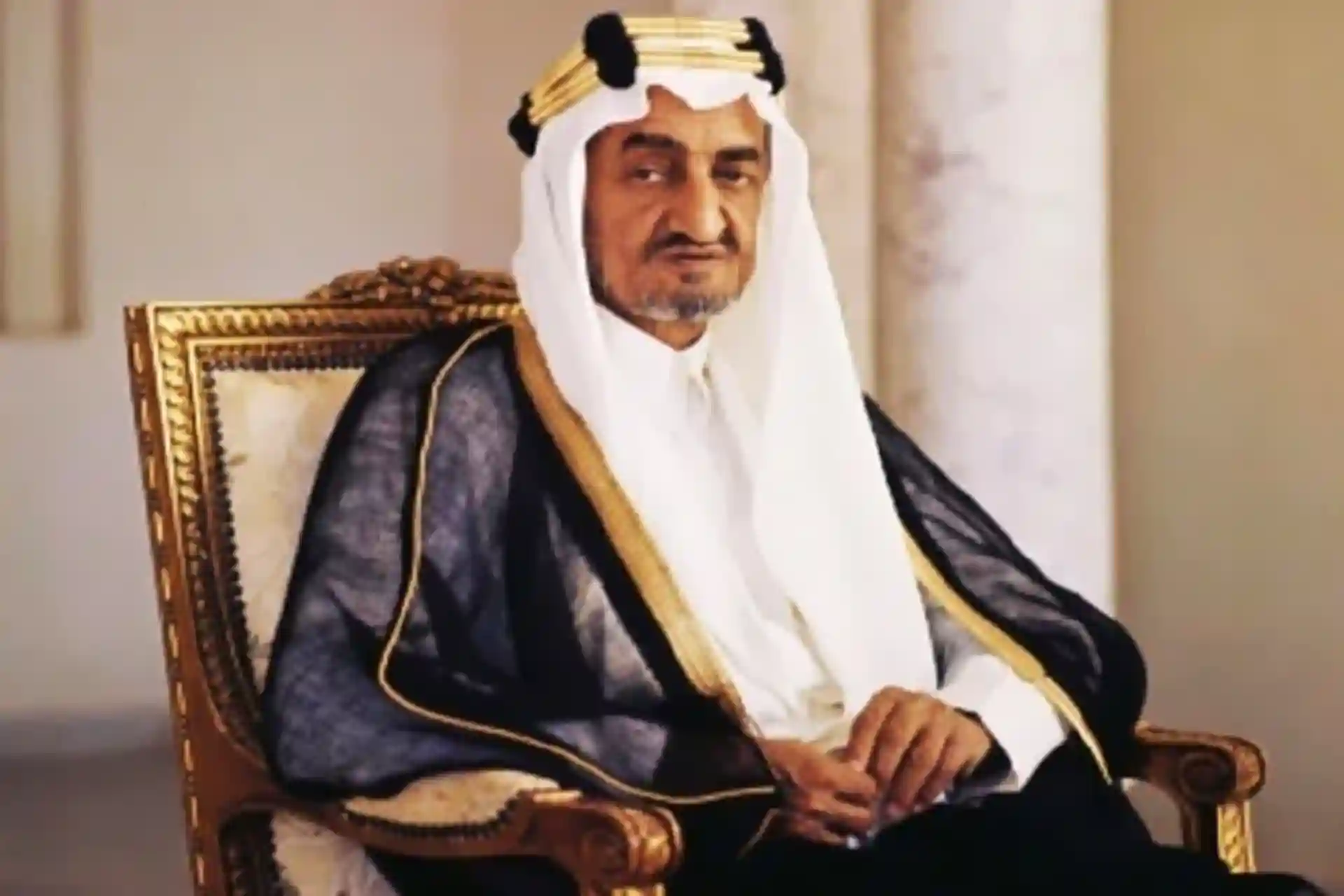15.11.2024 18:00
9640
A Saudi king who opposed America for Jerusalem and was shot dead by his own nephew
"Holy Jerusalem is calling us. Al-Aqsa Mosque is waiting for us to save it from suffering. Why are we afraid? What's holding us back? Are we afraid of death? Is there a more virtuous death than dying in the way of Allah? O Muslim brothers, we want resurrection. His name is the only Islam. This is not a sect, tribe, or sect resurrection. This is a resurrection for Jihad in the way of Allah. I pray to God to grant me martyrdom in his way. What is the point of living as Muslims if we cannot fight for the holy city today, if we do not fight for its freedom"...
These words were attributed to King Faisal bin Abdulaziz Al Saud, who was assassinated by his nephew Faisal bin Musaid on March 25, 1975.
Faisal bin Abdulaziz was born in November 1906 in Riyadh. He was the third son of Abdulaziz bin Saud, the founder of Saudi Arabia. Faisal lost his mother at a young age and was brought up by his grandfather Sheikh Abdullah bin Abdulatif.
He memorized the entire Qur'an at the age of nine. Also, Faisal learned to read and write in Kuttab, a traditional educational institution widespread in the Arabian Peninsula at that time. The future king was distinguished from others by his courage, wisdom and intelligence from childhood.
After returning to his father's care, Faisal gains practical experience in the field of politics and military affairs, learns the secrets of dealing with people in times of peace and war.
Faisal's early social upbringing had a significant impact on his oratorical skills, he was fluent in Arabic. He had the ability to express himself clearly and avoid topics he did not want to talk about. In the sources, Faisal is described as a quiet, thoughtful and quiet person. The fact that he listens a lot and speaks little, carefully chooses his words, and expresses his thoughts in a short and understandable way made a special impression on his interlocutors. Nevertheless, Faisal did not shy away from learning even the smallest details of the problems at hand. He was an example to others as he could quickly adapt to any situation.
Especially contemporaries of the king noted his modesty, that he did not allow anyone, even his children, to kiss his hand. This rule applied to everyone, regardless of their relationship or status. Faisal was distinguished by his patience and foresight. Relatives say that he did not rush to make decisions and avoided extravagance. He was fair and impartial even to people who disagreed with him.
King Abdulaziz trusted his son Faisal very early on and sent the 13-year-old prince to Britain to meet with the British just before the end of World War I. He takes private lessons and learns English in Britain. In 1925, when Sharif Husayn, who opposed the Ottoman Caliphate and ruled Hijaz for several years, was defeated, 20-year-old Faisal became the emir of Hijaz.
He takes care of Muslims coming to Saudi Arabia from different parts of the world to perform Hajj during the Emirate period. As much as possible, Faisal interacts with pilgrims and tries to find solutions to their problems. At the time, such people included prominent figures such as Muhammad Assad and Malcolm X.
In 1926, King Abdulaziz appointed him as his deputy. In 1927, Faisal became the chairman of the Shura Council, and in 1932 he became the minister of foreign affairs (retaining the chairmanship of the Shura Council).
One of his boldest decisions during his tenure as Secretary of State was to sever diplomatic ties with the United States. This decision was adopted in response to the UN resolution on the partition of Palestine.
He participated in various international conferences on behalf of Saudi Arabia, including the founding conference of the United Nations. After his father's death in 1953, his brother Saud bin Abdulaziz became king and Faisal was appointed prime minister. However, due to his brother's mismanagement, Faisal was removed from his position by the royal family council. In 1957, a serious financial crisis occurs in the kingdom. As a result, the government will have to borrow money from Western countries and Aramco.
Meanwhile, King Saud falls ill and goes abroad for treatment. Due to his failing health, the king's eldest son, Prince Mohammed, gathers scholars and princes to discuss the situation. They unanimously agreed to keep King Saud in office and give Prince Faisal the authority to run domestic and international affairs. This authority was intended to remain in effect regardless of whether the king was in the country or abroad. Finally, on November 2, 1964, Prince Faisal was proclaimed King of Saudi Arabia.
King Faisal was one of the founders of the Organization of the Petroleum Exporting Countries (OPEC), a group of 13 countries that control two-thirds of the world's oil reserves. Unlike other Arab leaders, Faisal championed Islamic unity rather than Arab nationalism. One of his main concerns was the Arab-Israeli conflict, especially the 1967 Six-Day War. He became one of the leaders of the states who were most upset by the defeat of the Arab League and the expansion of the Israeli occupation.
The turning point for Faisal came on August 21, 1969, when a fanatical Australian Jew, Michael Dennis Rohan, set fire to the Al-Aqsa Mosque in Jerusalem. At that time, fire destroyed the wooden minbar that Salahiddin had installed after conquering Jerusalem, causing serious damage to the mosque.
In response, King Faisal created the Organization of Islamic Cooperation (OIC) under the leadership of Saudi Arabia. He strongly condemned Israel and expressed deep concern about Al-Aqsa Mosque.
Regarding foreign policy, King Faisal did not hesitate to sever diplomatic ties with countries that supported Israel in any way. For example, on May 14, 1965, Faisal stood by his principle even when West Germany agreed to pay a large sum of money to Israel. In 1967, after Israel's invasion of the Arab states, Saudi Arabia stopped exporting oil to Britain.
Relations between Saudi Arabia and France also became somewhat strained during King Faisal's reign. This was due to Faisal's financial, military and moral support of French colonial Arab states like Algeria. It is noteworthy that the meeting between Faisal and French President Charles de Gaulle served to change the position of the French towards the Arabs.
King Faisal focused on staunch support for Egypt after the 1967 war. On October 6, 1973, the fourth Arab-Israeli war began. King Faisal joined Egypt and Syria in fighting the Zionists.
In the 1973 Yom Kippur War, Egypt and Syria formed an alliance to attack Israel and take back the occupied lands. Western countries, in particular, the United States and Great Britain, supported Israel. In response, King Faisal imposed an oil embargo on countries that supported Israel. The embargo led to a global energy crisis. US Secretary of State Henry Kissinger met with King Faisal to negotiate, but Faisal rejected all offers of compromise. When Kissinger threatened to bomb Saudi oil wells, Faisal made a bold statement that would go down in history:
"You can bomb our oil wells. Our ancestors lived on dates and camel milk. We can do it again, but you cannot live without oil,” he said.
King Faisal's "oil war" coincided with Egyptian and Syrian military actions against aggression. In addition, King Faisal ordered Saudi Arabia's armed forces to prepare and move into Syria to support the frontline countries. This military cooperation contributed to the victory of the Arabs in the war. The war resulted in the formation of a united Arab front. As a result, the US hastened to use all its diplomatic tools to resolve the Arab-Israeli conflict. European countries and non-aligned socialist countries also supported the Arabs. African countries' solidarity and Islamic solidarity movements have also emerged.
After that, King Faisal became the West's nightmare. In turn, it was impossible for these forces, who were skilled in various conspiracies and tricks, to watch silently.
On March 25, 1975, at an open forum in Saudi Arabia, the king's nephew, Faisal bin Musaid, came to see his uncle. During the meeting, his nephew unexpectedly shot at the king. One of the bullets hits him in the face, the second in the head, and the third misses the target. As a result, King Faisal dies in the hospital.
Musaid studied in the United States for many years and was an alcoholic and drug addict. He is believed to have been recruited by the Central Intelligence Agency (CIA) and sent to Saudi Arabia to kill his uncle. Perhaps the CIA directed him through a secret drug and his American girlfriend Christine Surma. In any case, the assassination of King Faisal, who shocked the United States with his incredible actions, shook the Muslim world. The Islamic and Arab world said goodbye to one of its pillars.



